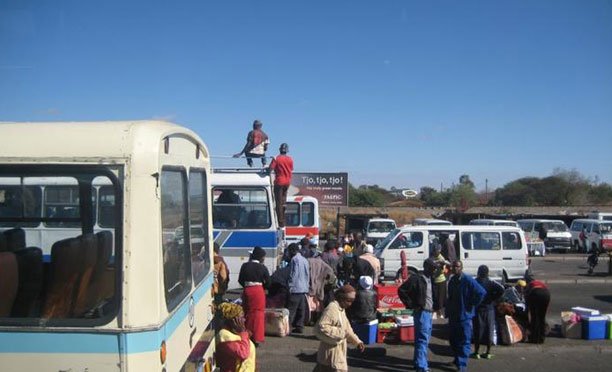Cross-border trade between Botswana and Zambia booming
It is a Wednesday evening and a large group of women, mostly Zambian, idle at the Francistown bus rank. One bus with a huge trailer is parked nearby and a middle aged man with a paper writes down names and the items each person has.
There are more than 50 people waiting to board the bus, headed to Lusaka. There are all kinds of electronics from kettles, microwaves, flat screen LCD televisions, fridges to cooler boxes, water tanks. After that comes the mission of getting everything on board. The three back seats are filled with televisions. The fridges are packed in the trailer.
The rest of the items are in the bus storage. It is packed. The bus driver expresses disgruntlement with the way everything is filled up. There is not enough space for the boarders, so they pack like sardines, some shoved atop the television sets and others stuffed up in front.
The bus eventually leaves around 1am. It will arrive in Lusaka at around 7pm in the evening, considering the nearly four-hour stop at the busy Kazungula border. The bus conductor and other assistants refuse to help them. One woman exclaims: “We are strong women, we will help ourselves,” as she carries a huge televiion set.
Some of the women will travel further to the North of Zambia or to neighbouring towns and villages. Only when this reporter tells them she is travelling to Zambia to buy stock, do they evntually down their guard. Familiarity always brings people closer. Jennifer Jobe, explains that most of the women are breadwinners or single parents.
Out of the 52, there are only two men. She explains that they purchase the electronic goods here at a cheaper rate because sometimes demand is unmet back home. “We get good deals here, put in a mark up and can make a profit.
The long trips are worth it. Being on the road for nearly 26 hours does not affect us much because it is our bread and butter, and a great way to supplement our income,” she says. On the other side, scores of Batswana travel to Zambia to buy stock, mostly shoes and clothes, to re-sell here.
At the Lusaka bus rank and shops in the vicinity fashion threads from Chinese factories are being sold. One man sells a Nike pair of sneakers for 50 kwacha, which is about P60! These are fakes of course, but who cares? The off shoot market is big when you consider how many locals are making a killing.
Most people cannot afford the real deal and so they buy and wear fake labels. It is a huge thriving market. The informal sector runs economies. But they are faced with their own set of challenges. Governments vest interests in the growth of blue chip entities and neglect to develop policies that would favour Black indigenous entrepreneurs.
In more developed countries, the informal sector can be a source of employment opportunities particularly when the support for the growth of informal businesses and governments assist in their development.




